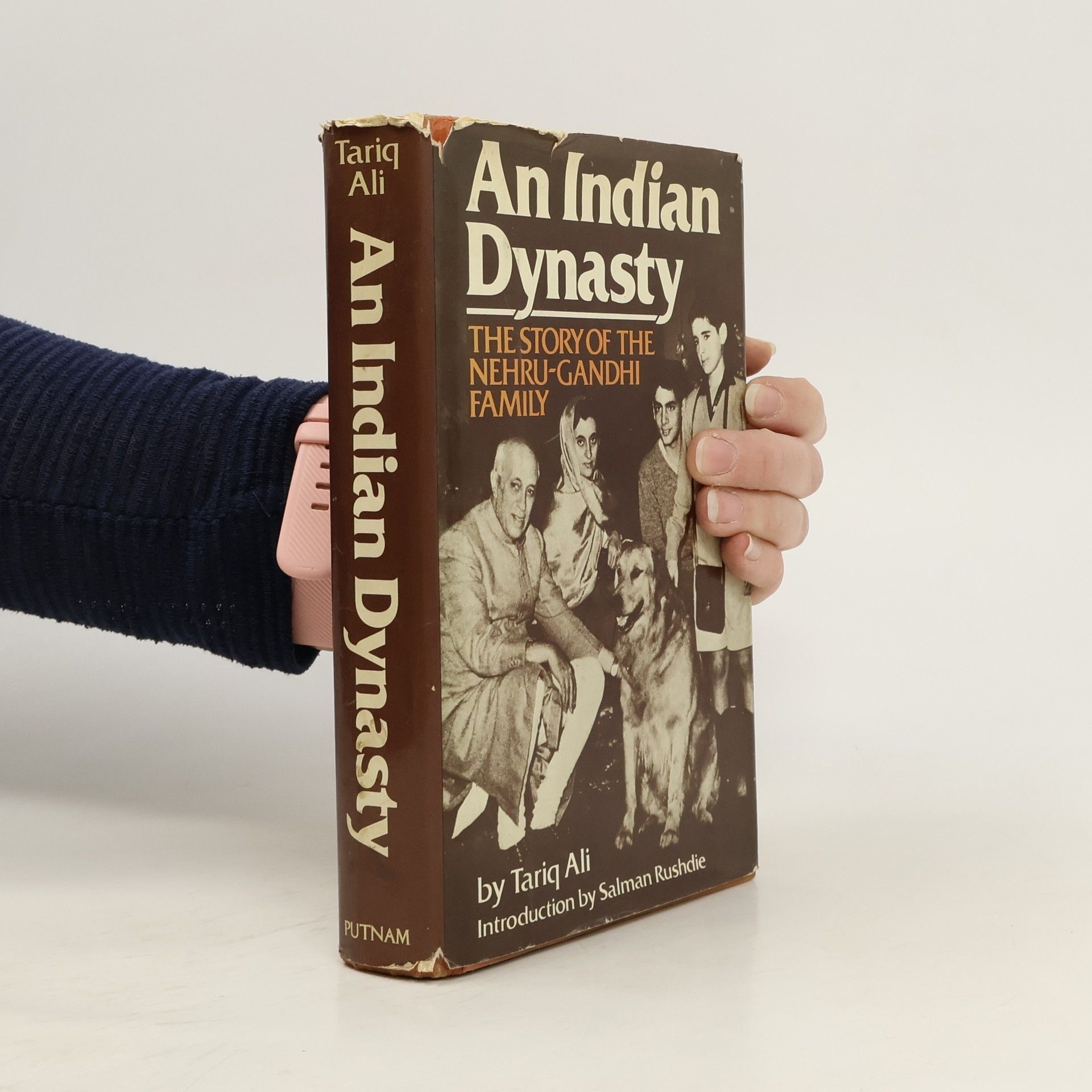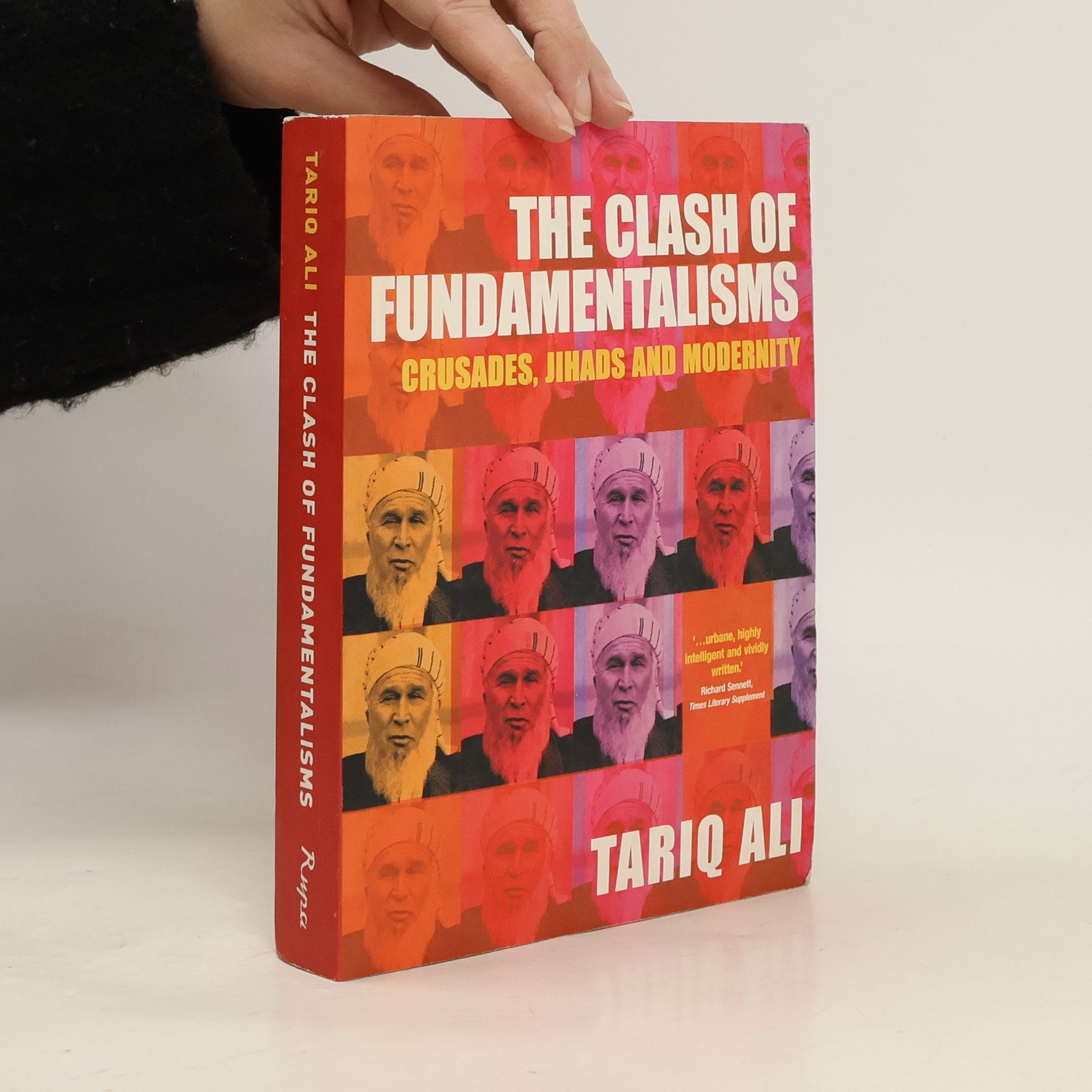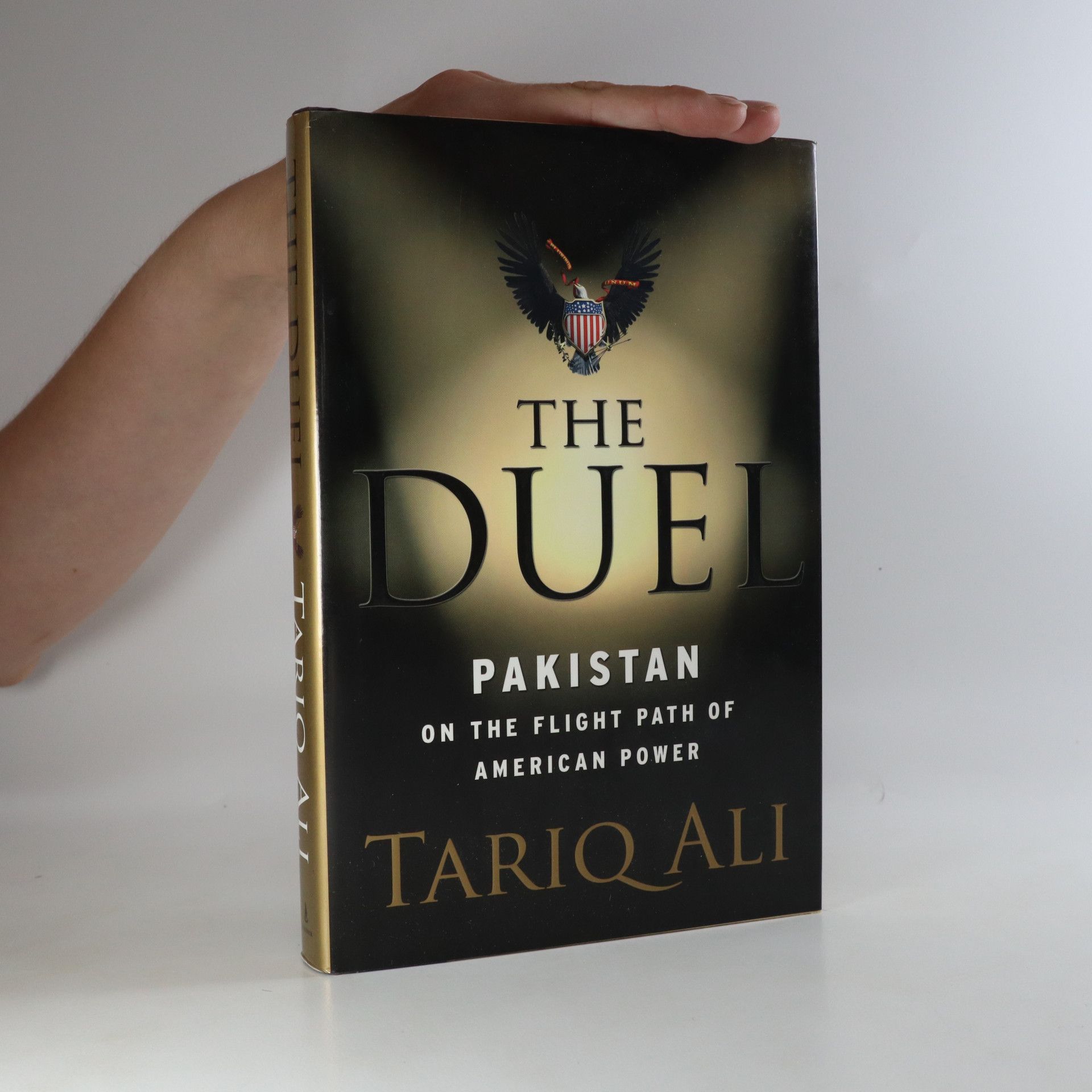Set against the backdrop of political upheaval, this memoir chronicles the transformative journey of a young individual who becomes deeply engaged in revolutionary activities. It explores themes of identity, social justice, and the quest for change, detailing the personal struggles and ideological awakenings that shape the protagonist's beliefs. Through vivid storytelling, the author offers insights into the motivations behind activism and the impact of historical events on personal growth, making it a compelling read for those interested in the intersection of youth and political movements.
Tariq Ali Books
Tariq Ali is a British-Pakistani historian and author whose work primarily delves into political and historical subjects. His novels and non-fiction writings are characterized by incisive analyses of contemporary global events and a profound understanding of historical contexts. Ali's style is noted for its critical sharpness and its ability to connect complex societal phenomena with personal narratives. His works provoke reflection on the nature of power, ideology, and international relations.







In 1993 Picador celebrated its 21st anniversary. This book marks the event by including 21 authors, each of which looks at a year between 1972 and 1992. Thus Oliver Sacks chose 1972, the year his mother died and he wrote "Awakenings" while the book ends with Tariq Ali writing about cricket in 1992.
This memoir offers an intimate glimpse into the life of a prominent political activist, reflecting on transformative experiences and pivotal moments from the 1960s. The author delves into personal struggles, social movements, and the quest for justice, providing a compelling narrative that intertwines personal anecdotes with broader historical contexts. Through vivid storytelling, the memoir captures the essence of activism and the enduring impact of the sixties on contemporary society.
The Declarations of Havana
- 160 pages
- 6 hours of reading
In response to the American administration’s attempt to isolate Cuba, Fidel Castro delivered a series of speeches designed to radicalize Latin American society. As Latin America experiences more revolutions in Venezuela and Bolivia, and continues to upset America’s plans for neo-liberal imperialism, renowned radical writer and activist Tariq Ali provides a searing analysis of the relevance of Castro’s message for today.
An Indian Dynasty
- 318 pages
- 12 hours of reading
The Nehrus are a dynasty without precedent in the modern world; nowhere else and at no other time in recent history has a single family wielded such enduring and pervasive power over the country and the electorate they serve. From Jawaharlal Nehru to his daughter, Indira Gandhi, and from there, via Sanjay and Rajiv to most recently Sonia, this remarkable family have consistently established both the parameters and rhetoric of India's political development. In the eighties, Tariq Ali made several trips to India, meeting a wide range of political and public figures, including Mrs Gandhi, and leaders of both the Congress and Opposition parties. The Nehrus and the Gandhis, first published in 1985, was the result. Now updated to include the most recent chapters in India's political history, it remains as relevant as ever, offering an intricate and revealing portrait of power, seen through the continued rise and eyes of one family.
Tariq Ali tells us the story of the aftermath of the fall of Granada by narrating a family saga of those who tried to survive after the collapse of their world. Ali is particularly deft at evoking what life must have been like for those doomed inhabitants, besieged on all sides by intolerant Christendom. "This is a novel that have something to say, and says it well." --"The""Guardian"
The history of Ottoman offical Iskander Pasha's family mirrors the decline of the empire they have served for hundreds of years
The clash of fundamentalisms: crusades, jihads and modernity
- 342 pages
- 12 hours of reading
The aerial attacks on the Pentagon and the World Trade Center, a global spectacle of unprecedented dimensions, generated an enormous volume of commentary. The inviolability of the American mainland, breached for the first time since 1812, led to extravagant proclamations by the pundits. It was a new world-historical turning point. The 21st century, once greeted triumphantly as marking the dawn of a worldwide neo-liberal civilization, suddenly became menaced. The choice presented from the White House and its supporters was to stand shoulder-to-shoulder against terrorism or be damned.Tariq Ali challenges these assumptions, arguing instead that what we have experienced is the return of History in a horrific form, with religious symbols playing a part on both ‘Allah’s revenge,’ ‘God is on Our Side’ and ‘God Bless America.’ The visible violence of September 11 was the response to the invisible violence that has been inflicted on countries like Afghanistan, Pakistan, Iraq, Saudi Arabia, Egypt, Palestine and Chechnya. Some of this has been the direct responsibility of the United States and Russia. In this wide-ranging book that provides an explanation for both the rise of Islamic fundamentalism and new forms of Western colonialism, Tariq Ali argues that many of the values proclaimed by the Enlightenment retain their relevance, while portrayals of the American Empire as a new emancipatory project are misguided.
Examines the increasing violence and political turmoil affecting Pakistan, the only Islamic state in possession of nuclear weapons and America's closest ally in its battle against terrorism, as well as prospects for peace and stability in the region.
Ali encourages the reader to take a fresh look at Lenin's choices in the context of a repressive autocracy, the poverty and misery of the bulk of the population under tsarism and the industrialised slaughter of the first world war. What underpins his book is the view that October was an 'innocent and utopian birth' that was subsequently 'twisted' into Stalinism by three devastating years of civil war. -Daniel Beer, Guardian [The Dilemmas of Lenin] aims to rescue Lenin from both liberal caricature and Soviet hagiography by recovering the realism and dynamism of his political thought. -David Sessions, New Republic Reading this book on your vacation will make your life better and your mind broader. -Branko Milanovic A powerful tool for those wanting to understand the real Lenin and therefore the real politics behind those revolutionaries who fought so hard but ultimately failed in their goal. -Lindsey German, Counterfire An incredibly powerful, panoramic, and insightful study of the central revolutionary figure of the twentieth century ... The Dilemmas of Lenin helps attentive readers comprehend something of what happened in history, the realities of our time, and how the future could unfold if we approach it with understanding and commitment. -Paul Le Blanc, International Socialist Review



